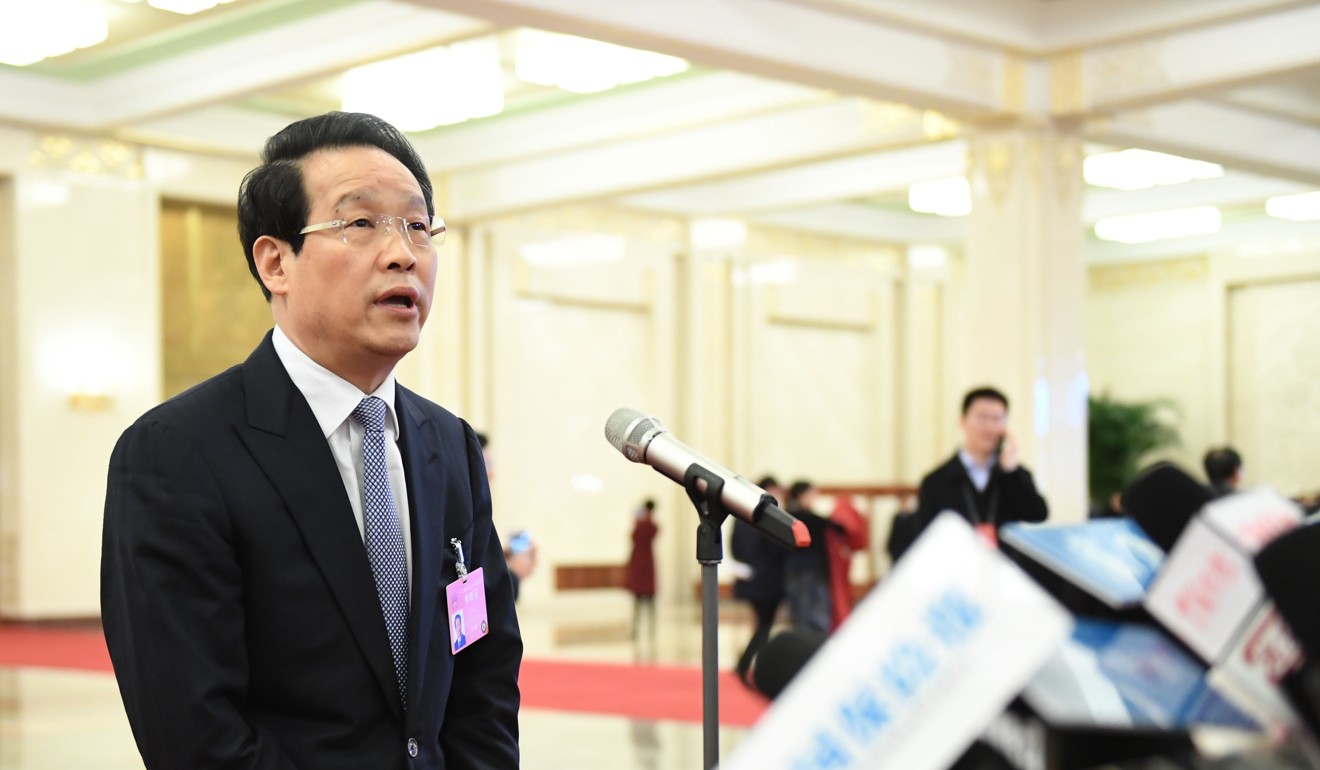
China’s insurance watchdog bans ‘special firms’ tolerated by former chief
China’s top insurance regulator said it will enforce existing rules and strengthen risk control as former chairman is handed over to prosecutors to face criminal charges
China’s top insurance regulator, the China Insurance Regulatory Commission (CIRC), said it would strive to create a level playing field and prohibit “special companies”, after its former chairman Xiang Junbo was expelled from the Communist Party and handed over to prosecutors to face criminal charges by the Central Commission for Discipline Inspection on Saturday.
“For market players, we should treat them equally and fairly, and we should never allow any special companies in future,” CIRC Vice Chairman Chen Wenhui, said in an internal meeting on Sunday, according to a document published on the agency’s official website on Monday.
Chen has been heading up the insurance regulator since Xiang was dismissed in April for “serious violation” of the Communist Party’s discipline – a catchall description that ranges from graft to financial misdeeds.
“The regulator did not elaborate on who exactly the special companies are, but obviously he was addressing the problem that some insurers had been running beyond the rules in the last few years,” said Daiwa analyst Leon Qi.
Aggressive acquisitions by insurers on domestic and overseas markets during the last few years have triggered criticism over the regulator’s loose control over the collection and use of insurance premiums.
“A more serious problem found amid the regulatory shake-up is the practice of faking company capital, but until now the CIRC has failed to issue a clear investigation conclusion – while capital requirements for insurance companies is essential to financial risk control,” said Guo Zhenhua, head of the insurance department at Shanghai University of International Business and Economics.
In early May, just one month before Anbang chairman Wu was taken away for investigation, Chinese media Caixin reported that the group’s 50 billion yuan (US$7.55 billion) capital increase in 2014 was faked under the cover of opaque structures and related companies.
Anbang said the report was groundless and pledged to take legal action.

“We should reshape the idea and reposition the insurance industry. The focus of the regulator is regulatory, but not making the industry bigger,” Chen said.
Chen’s remark highlighted a clear breakaway from Xiang’s call to promote the insurance industry through reform and innovation.
Since taking over as CIRC chairman in 2011, Xiang pushed reforms and liberalisation in terms of insurance business licence approvals and insurance product innovation.
In 2013 he initiated the issuance of a set of new policies, known informally as “13 new insurance rules”. One important policy change expanded the range of permitted investments by insurance funds, opening a channel for funds to flow into overseas equities.
Later the CIRC raised the ratio of assets that insurers can invest in stocks and private equity to 40 per cent, up from 25 per cent.
The focus of the regulator will be enforcement of the existing rules, and strengthening of risk control
In 2015 the CIRC loosened restrictions for universal policies, triggering aggressive sales of short-term products similar to wealth management products.
“The signal from Beijing is clear, that risk control has been prioritised as the authority pushes forward debt cutting and financial industry clearing,” Guo said.
“Regulators always face a dilemma. To grow the industry you need to open up and promote reform and innovation, but to curb risks and protect investors, you need to tighten up,” he added.
The CIRC had been “unable” to uncover wrongdoing by some smaller, ex-directory insurance companies, Daiwa analyst Qi said, adding that some companies had been breaking rules by registering proceeds as company capital, or making non-compliant investments.
According to announcement made by the Communist Party’s anti-corruption watchdog on Saturday, Xiang was accused of “serious violations of political discipline and rules”, including “abusing his power of approval and supervision” to serve personal political interests, and making money-for-power deals, and sex-for-power deals.
As of November 2016, total assets under management by the insurance industry reached 1.5 trillion yuan, up nearly 150 per cent from 2011. Standard premium income rose to 2.9 trillion yuan, double from levels in 2011.
In late 2016 and late in the first quarter of 2017, the CIRC launched two rounds of policy tightening with a focus on regulating short-term products and investment compliance.
Following the tightening, premium income increased 21.3 per cent to 2.53 trillion yuan, compared with a jump of 35.4 per cent in the same period last year, according to CIRC data released early this month.
Growth in life insurance premium income in the January-July period slowed to 23.9 per cent, to 1.96 trillion yuan, compared with 47.7 per cent growth in the same period last year, according to Reuters calculations of CIRC filings.
The CIRC has been running without a chairman for more than five months since Xiang’s fall. But analysts said a clear message has been sent regarding how Beijing wants the industry to reposition.
“No matter who the new chairman will be, the focus of the regulator will be enforcement of the existing rules, and strengthening of risk control,” Qi said.

